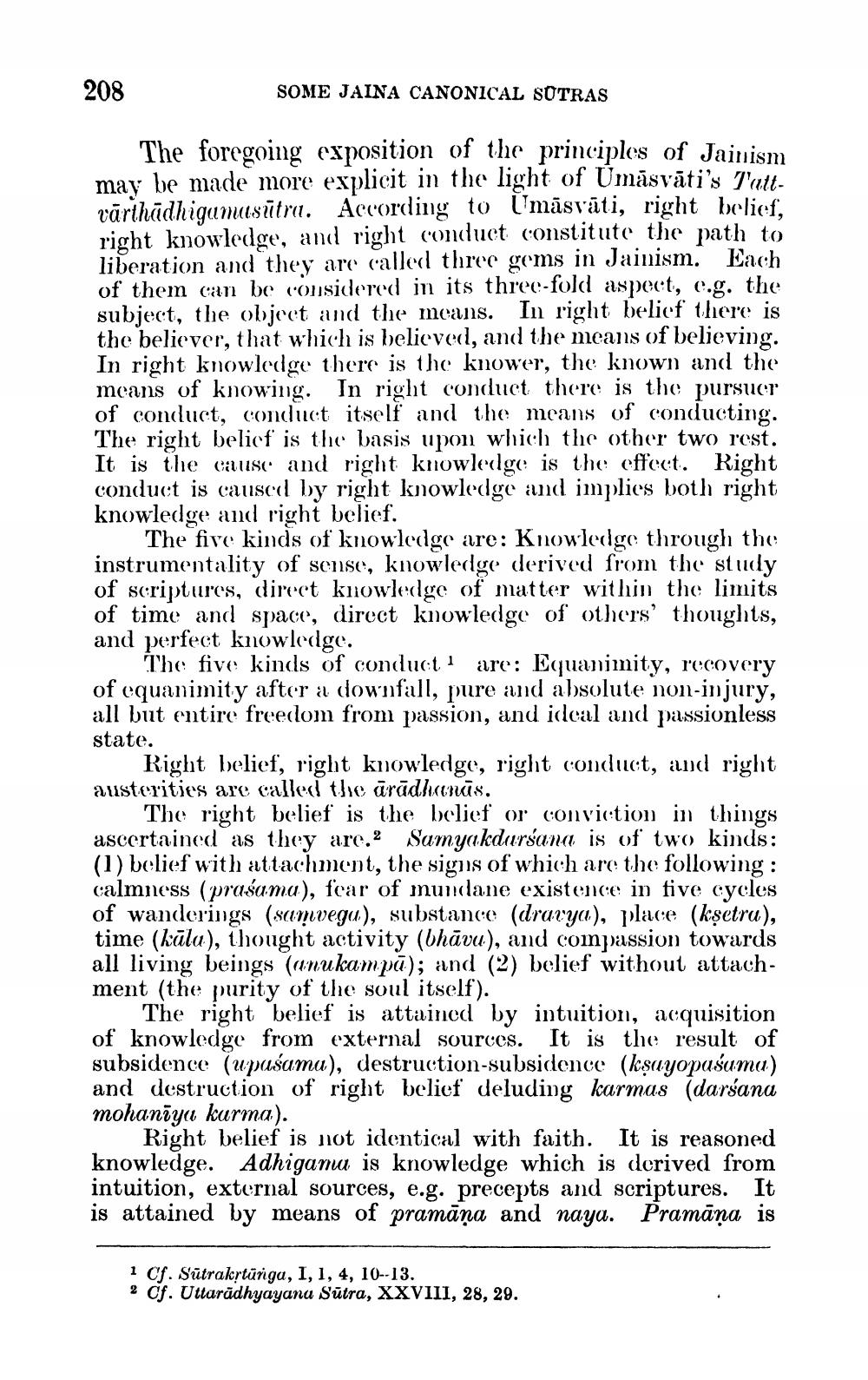________________
208
SOME JAINA CANONICAL SOTRAS
The foregoing exposition of the principles of Jaiuism may be made more explicit in the light of Umāsvāti's T'attvārinādhigamasutra. According to Umāsvāti, right belief, right knowledge, and right conduct constitute the path tó liberation and they are called three gems in Jainism. Each of them can be considered in its three-fold aspect, c.g. the subject, the object and the means. In right belief there is the believer, that which is believed, and the means of believing. In right knowledge there is the knower, the known and the means of knowing. In right conduct there is the pursuer of conduct, conduct itself and the means of conducting. The right belief is the basis upon which the other two rest. It is the cause and right knowledge is the effect. Right conduct is caused by right knowledge and implies both right knowledge and right belief.
The five kinds of knowledge are: Knowledge through the instrumentality of sense, knowledge derived from the study of scriptures, direct knowledge of matter within the limits of time and space, direct knowledge of others' thoughts, and perfect knowledge.
The five kinds of conduct are: Equanimity, recovery of equanimity after a downfall, pure and absolute non-injury, all but entire freedom from passion, and ideal and passionless state.
Right belief, right knowledge, right conduct, and right austerities are called the ārādhanīs.
The right belief is the belief or conviction in things ascertained as they are. 2 Samyakdarsana is of two kinds: (1) belief with attachment, the signs of which are the following: calmness (prašama), fear of inundane existence in five cycles of wanderings (samvegu), substance (drarya), place (kşetru), time (kāla), thought activity (bhāvu), and compassion towards all living beings (anu kampā); and (2) belief without attachment (the purity of the soul itself).
The right belief is attained by intuition, acquisition of knowledge from external sources. It is the result of subsidence (upaśamu), destruction-subsidence (kşayopasumu) and destruction of right belief deluding karmas (darśana mohaniya kurma).
Right belief is not identical with faith. It is reasoned knowledge. Adhigama is knowledge which is derived from intuition, external sources, e.g. precepts and scriptures. It is attained by means of pramāņa and naya. Pramana is
1 Cf. Sūtrakrtūrga, I, 1, 4, 10--13. 2 Cf. Uttarādhyayana Sūtra, XXVIII, 28, 29.




